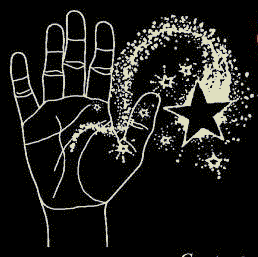It was American author Robert Fulghum who said:
Thursday, October 11, 2007
Monday, October 1, 2007
Sinus Headaches & Allergies
Sinus Headaches & Allergies
A sinus headache is a headache that occurs because your sinuses are swollen closed or congested with mucus. The sinuses are hollow spaces in the bones of your face. They connect with the nose through small openings. Like the nose, they are lined with membranes that make mucus. Mucus drains through the small openings to the nose.
How does it occur?
If you have a cold or allergies, the openings of your sinuses may be blocked by excess mucus or a swelling of the tissue that lines the sinuses. When drainage of mucus from the sinuses is blocked, the sinuses become congested. They may become infected with bacteria, a virus, or even fungus. The infection can make the sinuses even more clogged. The pressure caused by swelling and congestion causes sinus headaches.
Most sinus problems happen when you have had a cold. Often hay fever or irritation from dust or smoke causes swelling of the sinuses. Sometimes a tooth infection spreads to the sinuses.
If you have injured the bones in your nose or have a deformity of the nose that causes the sinuses not to drain properly, you may be more likely to get sinus congestion and infection.
What are the symptoms?
Some symptoms of a sinus headache are:
- pain or pressure in the forehead or around the eyes and cheeks
- tender skin and tender bones over and under the eyes.
- Blowing your nose, stooping down, or jarring your head (as might happen when you jog or do aerobics) may make your headache feel worse.
How is it diagnosed?
Your health care provider will ask about your symptoms and examine you. You may have an x-ray and possibly a CT scan to look for swelling, fluid, or small benign growths (polyps) in the sinuses.
How is it treated?
Aspirin, acetaminophen, or ibuprofen can help relieve pain. Your health care provider may prescribe a decongestant. If your provider suspects you have a sinus infection, he or she may also prescribe an antibiotic. Antihistamines may help if allergies are a cause, however, please remember that antihistamines will also dry up your sinuses. If your sinuses are clogged and not draining, this may not be the best OTC remedy to use. Moist herbal packs placed along the frontal sinuses may help relieve the congestion. Also, you might want to try a moist, heated towel roll placed along the back of the neck for about 15 minutes. Inhaling steam, scented with Essential Lavender Oil or Eucalyptus Oil will help relieve the headaches and open the sinuses for drainage. And of course, Mom’s Chicken Soup works wonders.
 Make it from scratch and inhale the aroma as you stir your soup.
Make it from scratch and inhale the aroma as you stir your soup.
How long will the effects last?
Your head should stop hurting when the sinuses become less congested. This usually takes about 1 to 3 days after you start treatment.
How can I take care of myself?
Add moisture to the air with a whistling steam tea pot or kettle. I do not like a humidifier or a vaporizer because mold may grow in your vaporizer.
Inhale steam from a basin of hot water or shower to relieve pain.
Put warm, moist washcloths on your face.
Use decongestants as directed. Never use nonprescription nasal spray decongestants for more than 3 days. After 3 days they may cause your symptoms to get worse.
Remember that antihistamines dry up your sinuses.
Get plenty of rest and drink a lot of water.
Drink orange juice or hot teas.
Take Vitamin C and Echinacea to boost your immune system.
Elevate your head in bed, but only slightly.
Take all of your medicine as prescribed by your doctor.
Call your health care provider if:
Your headache is not relieved by the medicine and other symptoms do not go away in 3 to 5 days.
You have a fever over 102F (38.9C) or foul-smelling discharge from your nose.
Your nose is bleeding.
Swelling over your forehead, eyes, nose, or cheeks has gotten worse.
Your vision is blurred or double, or you have problems with balance.
How can I help prevent sinus headaches?
Treat the problems that might cause the headaches, such as allergies.
Food-causing allergies might include cheese products as mold is used to help make it cheese; wine; yeast-based products, including beer and other alcoholic beverages.
Use oral or nasal decongestants before you fly, travel to high altitudes, or swim in deep water.
Use a humidifier in your home if the air is particularly dry (for example, if you wake up in the morning with a dry mouth).
Wash your hands after you blow your nose.
Sanitize your toothbrush or replace it with a new one. Your mouth harbors tons of germs. When you are ill, these germs have a thriving place to grow. Remember that your sinuses drain into the back of your mouth and throat, not just your nose. When your sinus cold is gone, replace your toothbrush to avoid cross contaminating yourself again.
Allergy Prevention is Key
A simple remedy, but often overlooked is a clean home. Replace your shower curtain, sanitize your dishwasher and washing machine, scrub away the mold that builds up around sink handles, clean out the drip tray in the bottom of your fridge. Make sure you do not have a source for mold under the sink, way in the back, where non-used items accumulate throughout the years.
Avoid smoke, other inhaled irritants, and allergens, such as animal dander, mold, and food allergies.
I am not a fan of potpourri, as I feel this is a catch-all for dust and all sorts of things. Once, I found dead bugs in my potpourri, even though the artificial fragrance was still strong!
Check your carpet. Is it a source for the breeding of allergens? We recently ripped up our basement carpeting, and sure enough, the carpet was molding in the corners.
Artificial scents for the home can be a source of allergens. If your home is clean, you do not need scented sprays or powdered carpet fresheners. Replace them with clean-burning, natural, soy candles scented with natural essential oils if you desire a fresh fragrance to your home.
Clean your furnace regularly; change filters monthly.





